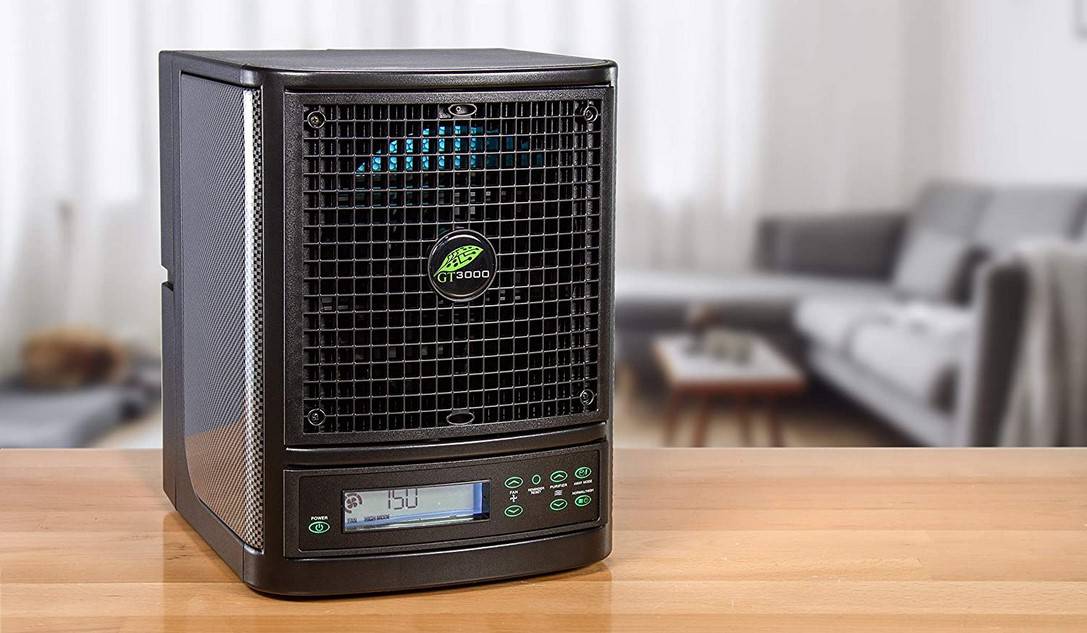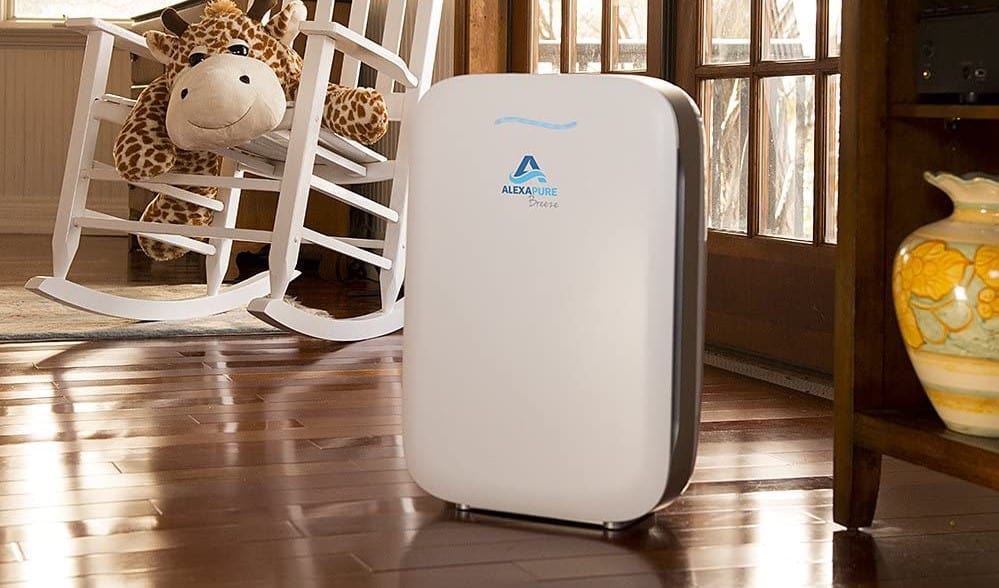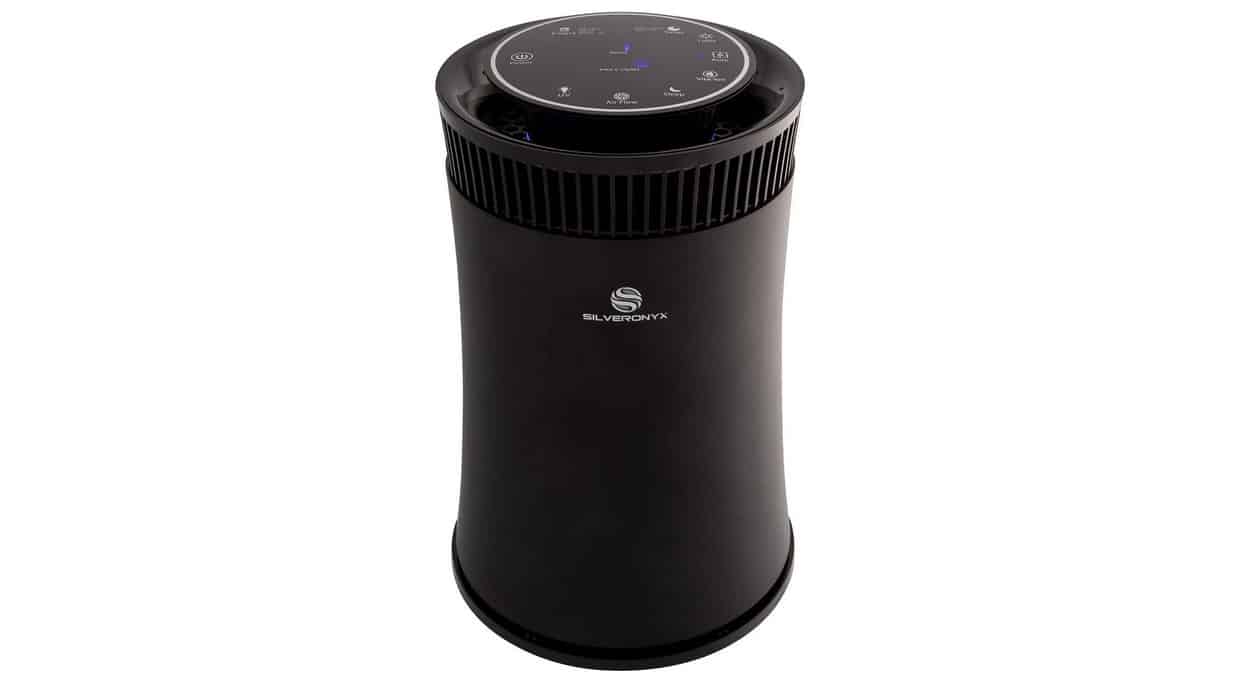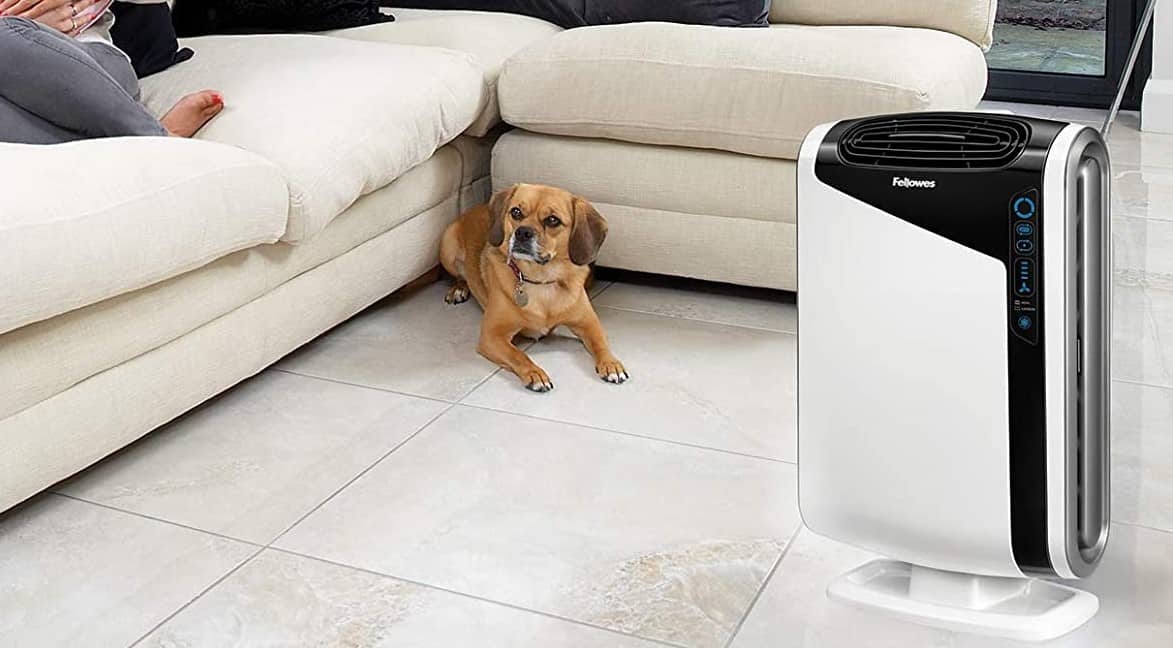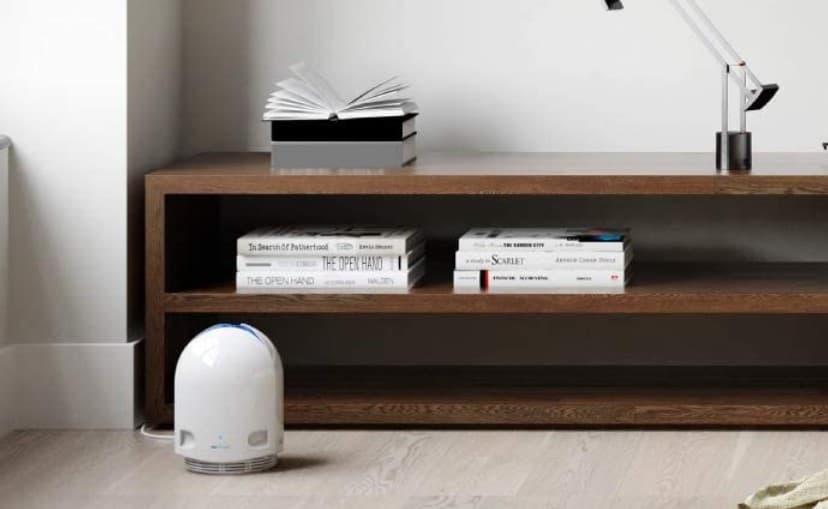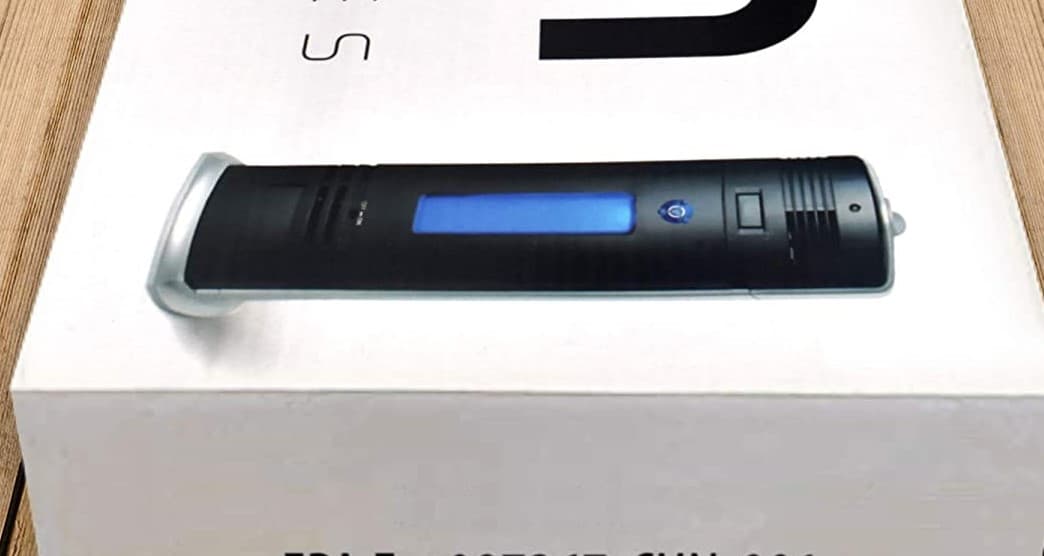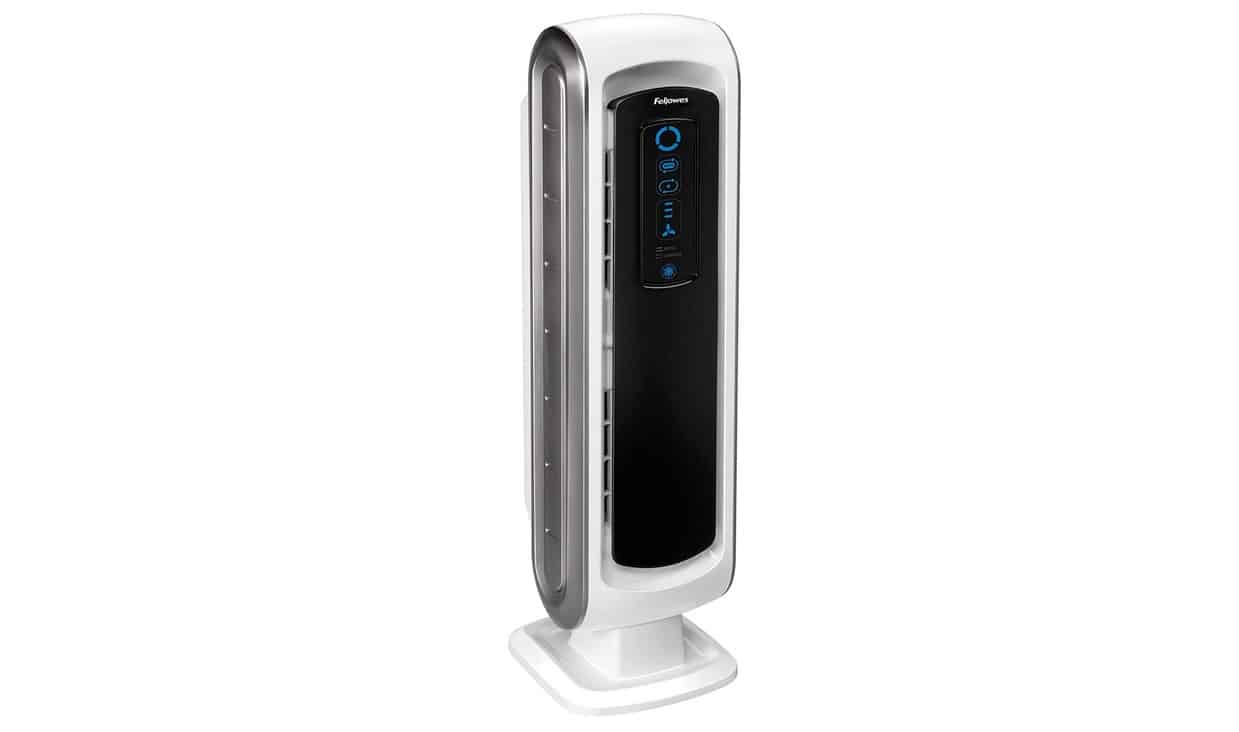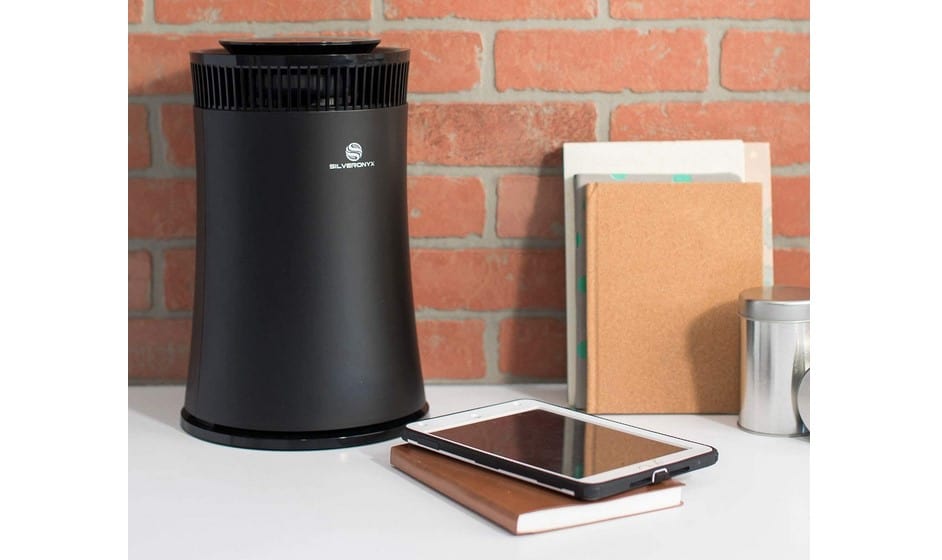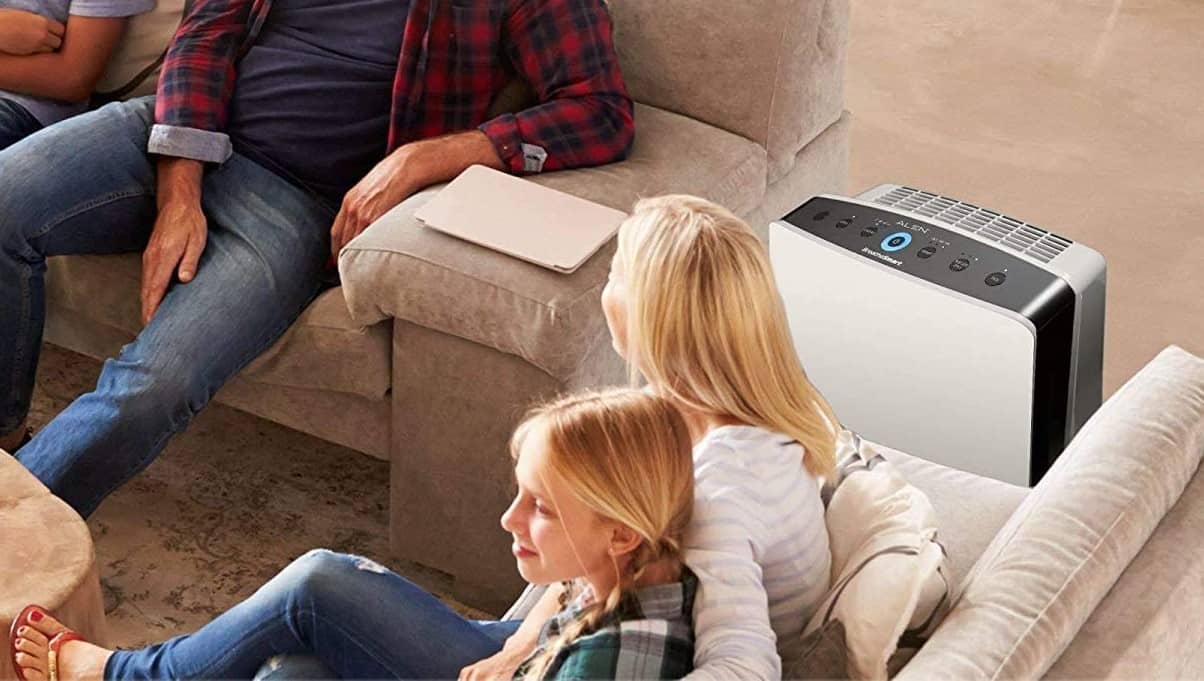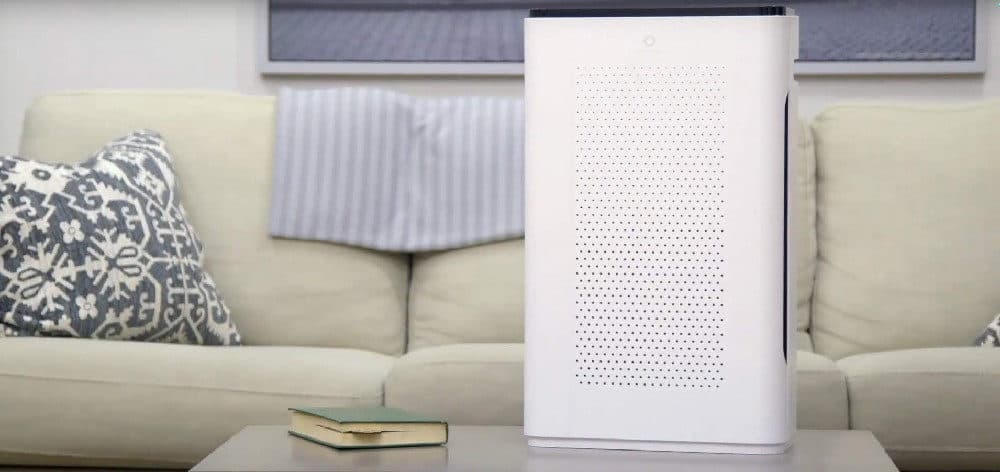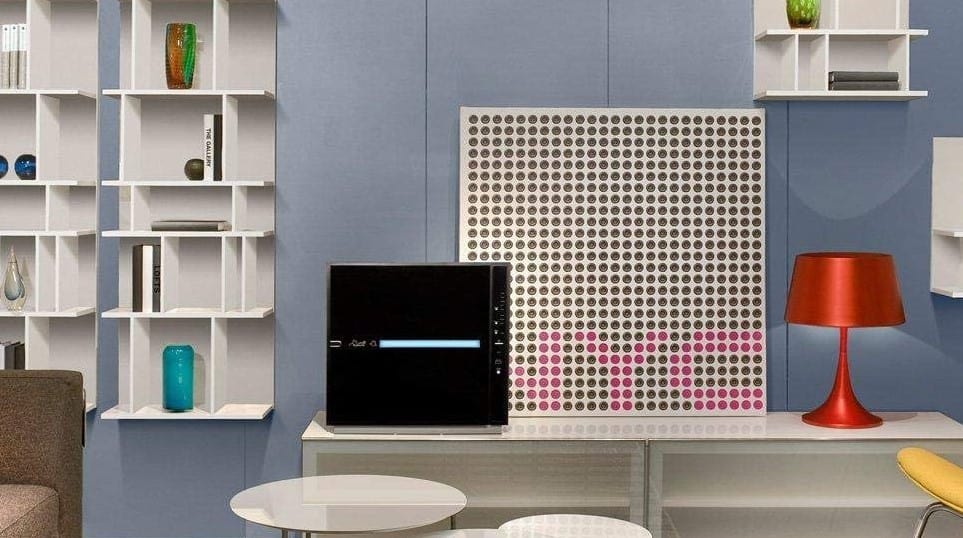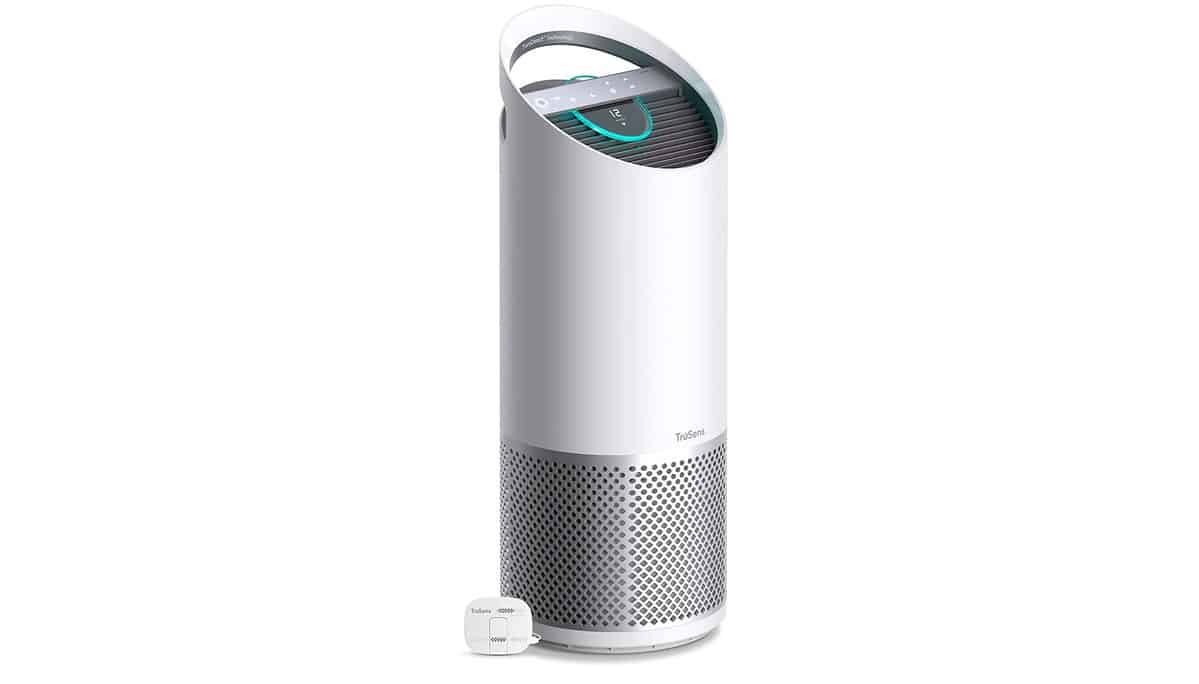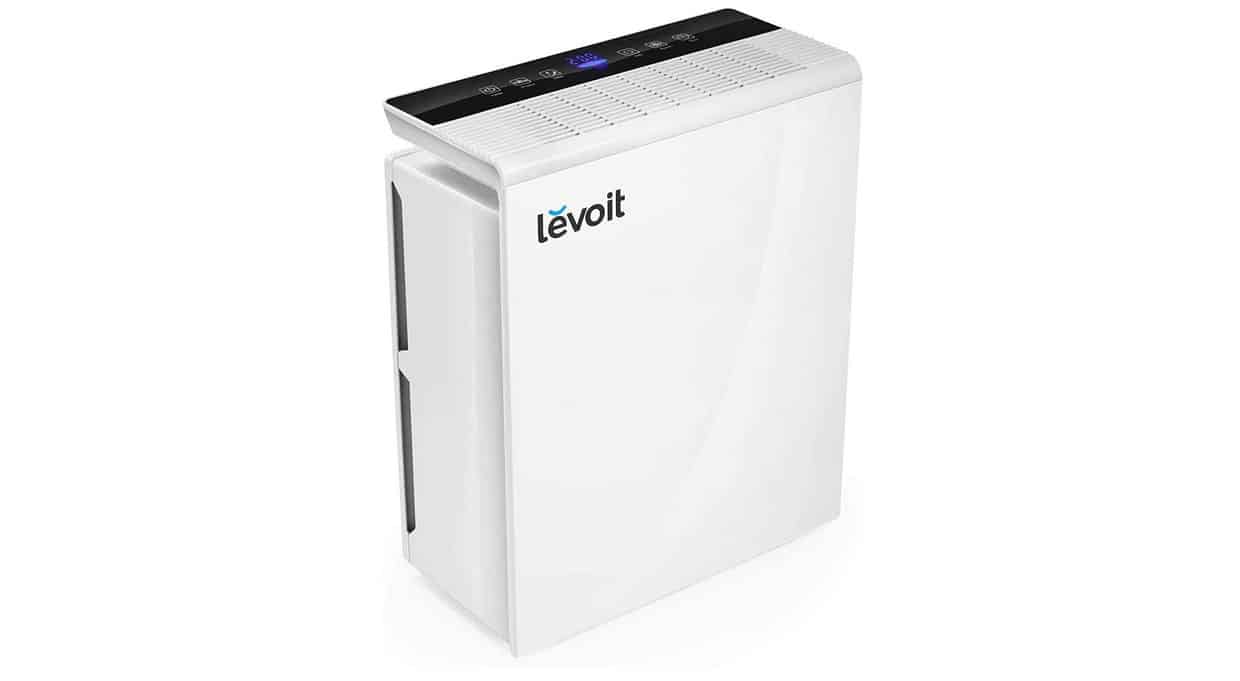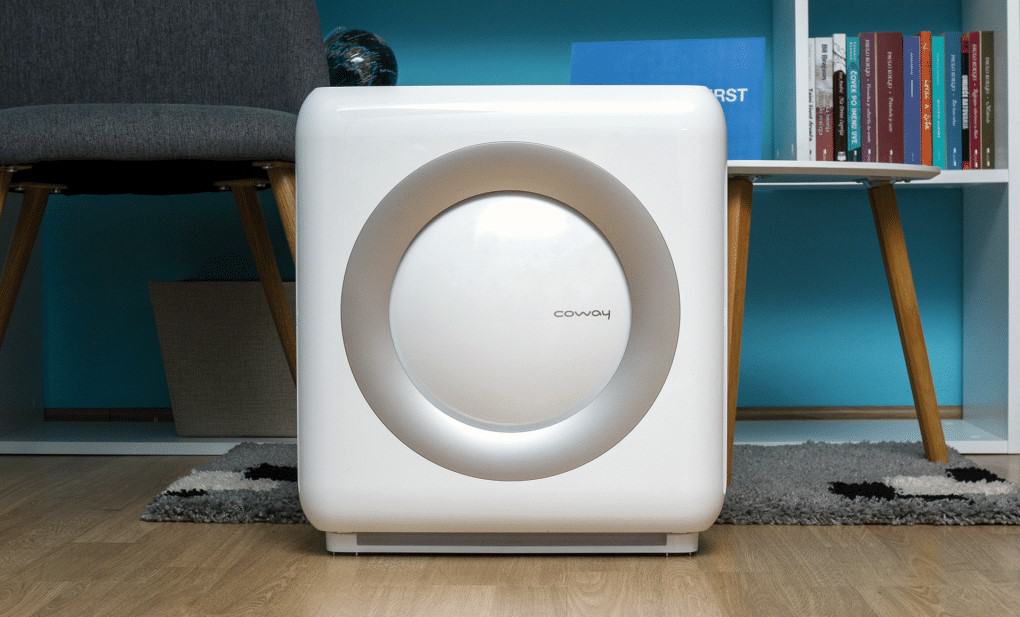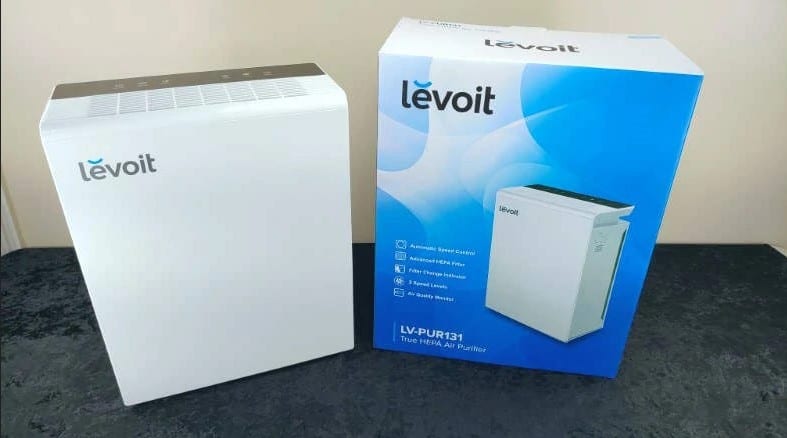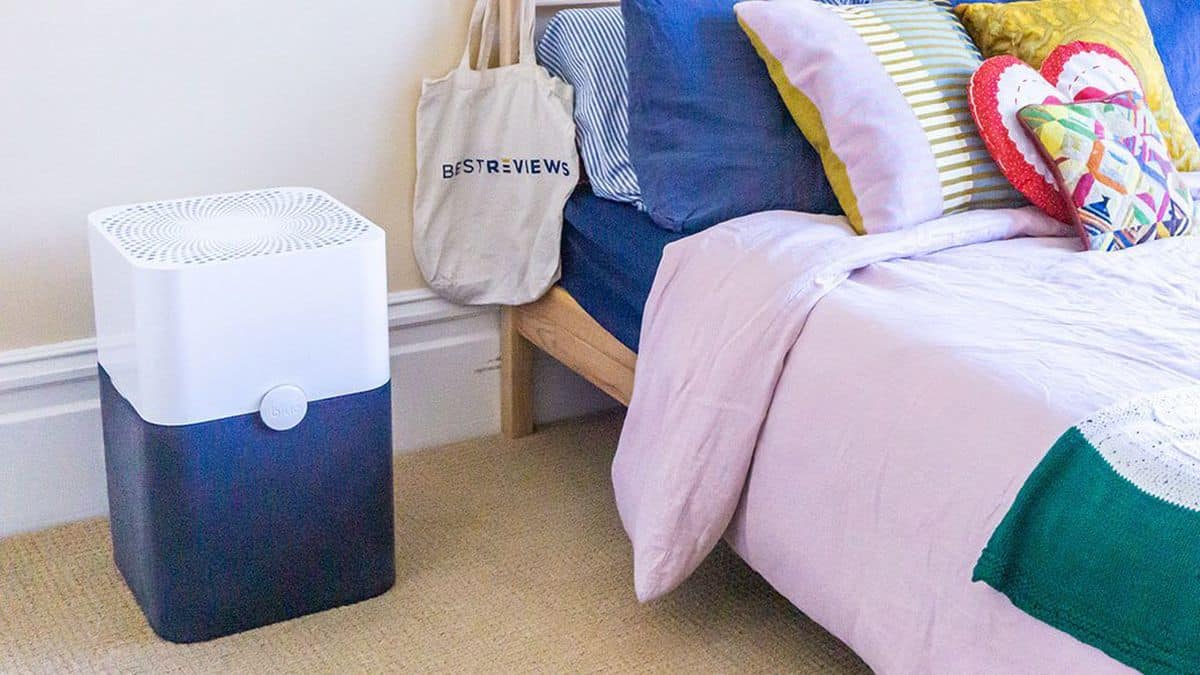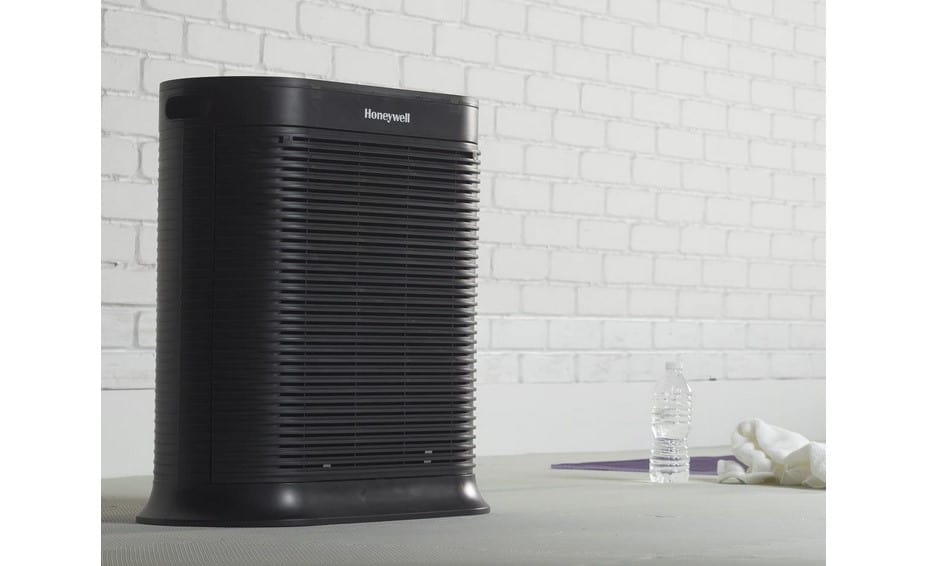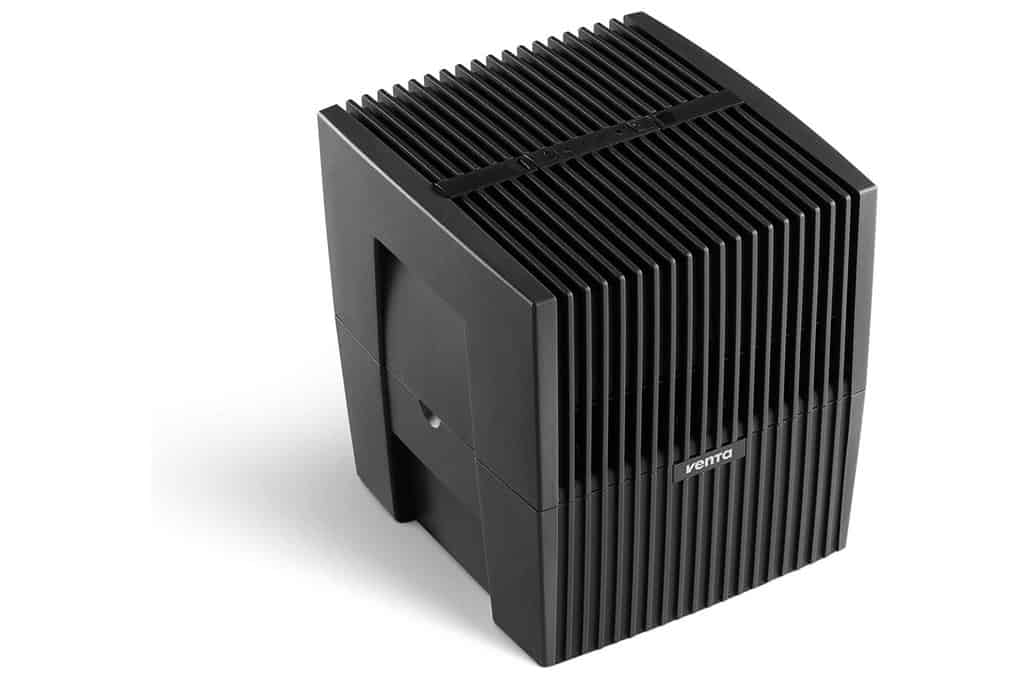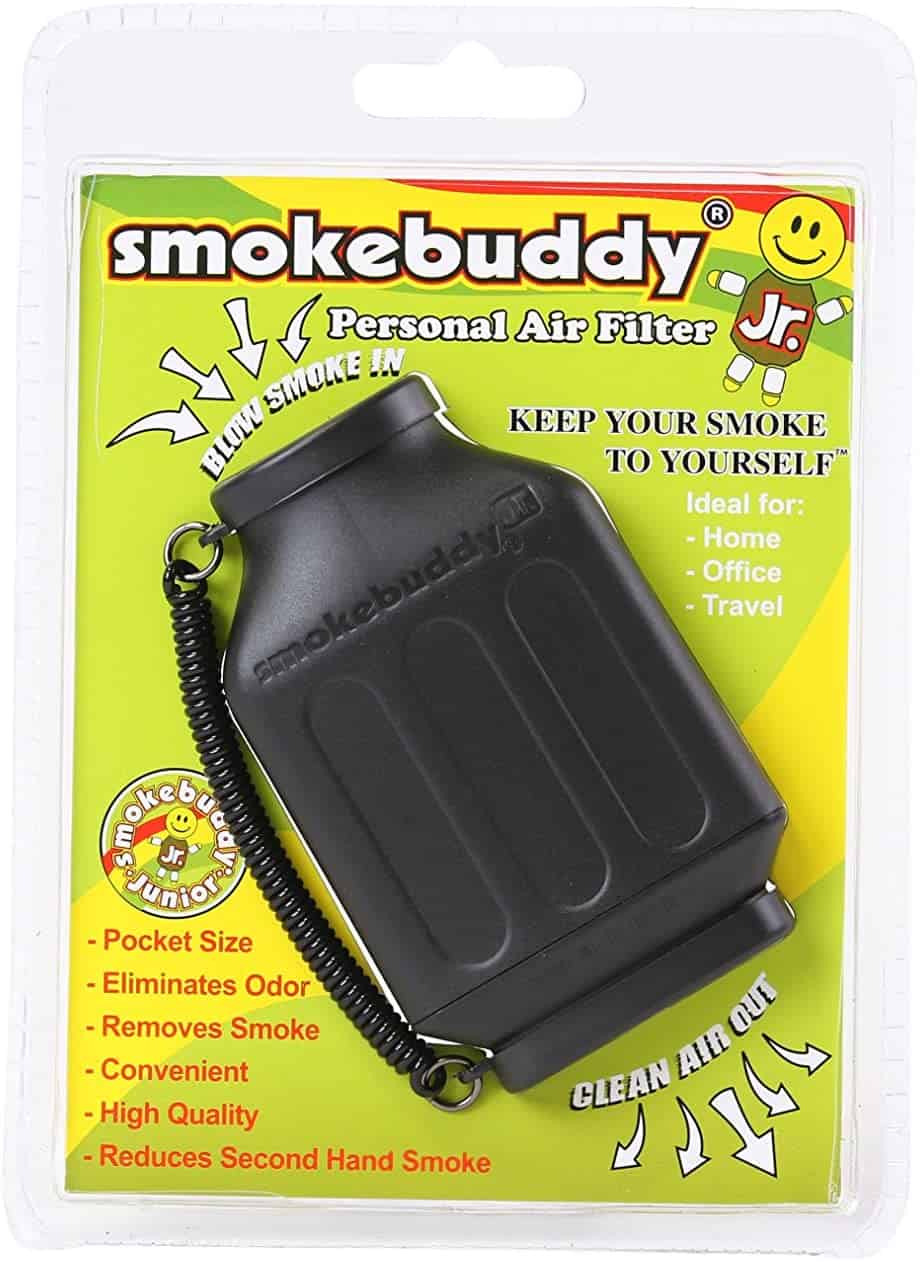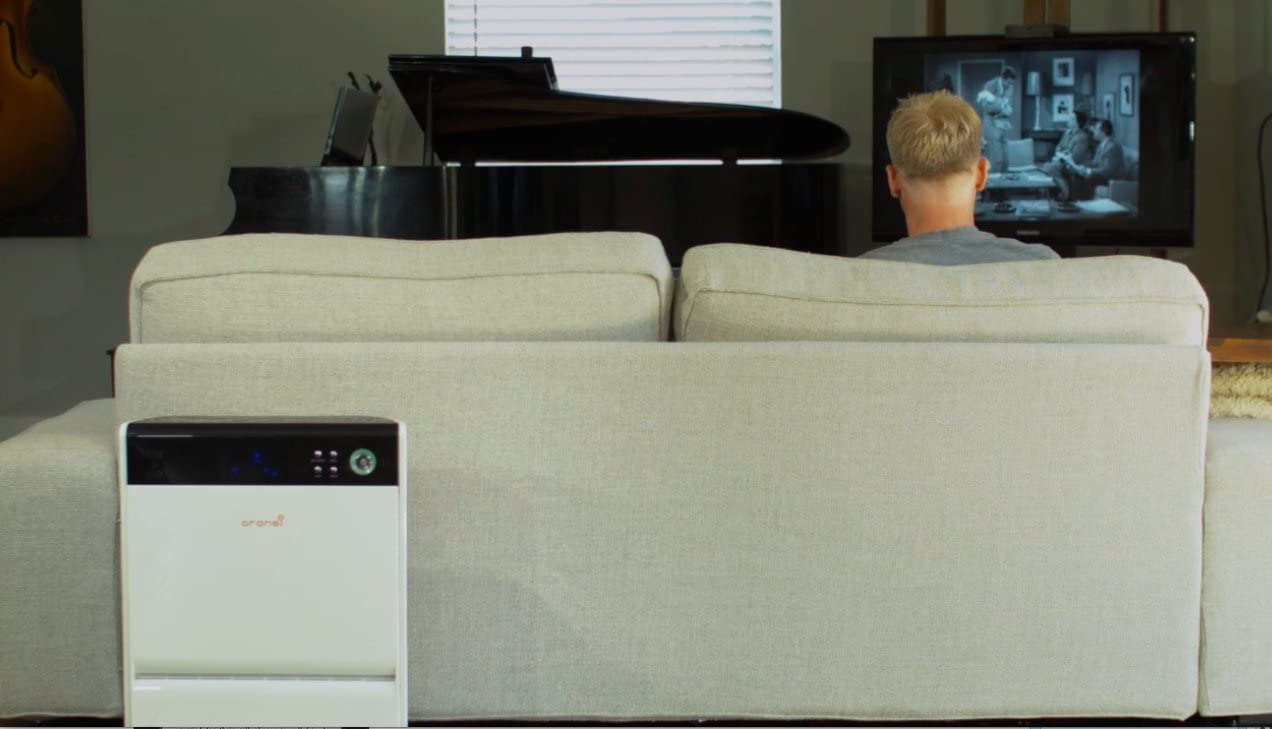Pitting an allergen remover vs an air purifier takes a little bit of thought. These are similar systems but with slightly different applications. Controlling common household odors will require a different design than removing larger particles that trigger allergic reactions. The purchase price of either unit is well worth the improvement to your health. Finding the best air purifier need not be too difficult if you know what you are looking for or what you need the air purifier to do.
KEY TAKEAWAYS:
- Both systems filter out ultrafine particles that can be hazardous to your health, but they have slightly different applications.
- Those struggling with allergies or asthma symptoms are better off investing in an excellent allergen remover to improve their conditions.
- If you just need a system to provide a cleaner environment, looking into an air purifier will be better.
Comparing Air Purifiers to Allergen Removers
Looking into an allergen remover vs an air purifier probably means you’re trying to improve your overall health. There are different models for different needs, such as having an extra-large room or high square footage in your home. If you’re comparing various types of air purifiers, there are tons of articles on the topic.
What is an Air Purifier?
Also known as air cleaners, these devices filter airborne particles to remove unwanted organic compounds and airborne allergens. This is especially true for fresh air as an air purifier can eliminate so much more. An air purifier can help you limit exposure to pet dander, mold spores, and more. Once you understand how air purifiers work, you might want to do a comparison of air washers vs air purifiers to find the best option.
The Benefits of Air Purifiers
There is an extensive range of benefits you can expect from an air purification system:
- Clean Air Delivery Rate (CADR) allows you to find a perfectly sized model
- A HEPA air purifier can altogether remove unpleasant odors
- Ultrafine particles are easily filtered out of your air for better overall health
- Portable air purifiers have a very reasonable purchase price
Who Should Get an Air Purifier?
Most people can benefit from a system that filters hazardous, ultrafine particles out of their air supply. If you’re trying to avoid an asthma attack at home, they’re a great choice. Lastly, plenty of top-rated air purifiers for allergies can help remove common allergens from your home. So, if you struggle with allergies, look into investing in a HEPA air purifier, or a good air filter and air purifier.
What is an Allergen Remover?
If your true HEPA purifier doesn’t seem to be doing enough for your symptoms, it might be time to invest in an allergen remover. This allergy-friendly solution can help you take your life back from the comfort of your own home. Pet owners who have allergies to pet dander should invest in an excellent allergen remover.
The Benefits of Allergen Removers
You can expect a ton of benefits from allergen removers:
- The chance of an asthma attack lowers significantly
- Can limit respiratory damage done by mold growth
- Offers extreme relief from asthma symptoms
- It might prevent you from developing allergic rhinitis
Who Should Get an Allergen Remover
The most significant difference between these two systems is that an air purifier is an overall purifying system. On the other hand, an allergen remover is specifically made to filter out microscopic allergens. There is some crossover, primarily since a HEPA air purifier is highly effective for allergen removal. Those just looking for overall improvements in health are better off with an air cleaner. The purchase price is well worth it for the results.
F.A.Q.
Are air purifiers necessary for allergies and asthma?
When it comes to controlling allergy symptoms, few things work as well as a HEPA air purifier. Air purifiers for allergies have become commonplace, with unique models made just for keeping indoor allergens under control. Asthma sufferers should also invest in an air purifier.
How often do you need to change an air purifier’s filter?
That depends on the type of filter that you have. An air purifier that requires replacement filters will always state how often you should change it in the owner’s manual. There are tons of answers in product info, whether you go with the manual or the manufacturer’s website.
Is a quiet air purifier safe to stay on while I sleep?
Airborne particles don’t sleep, so you should keep your air purifiers on while you sleep. If you have an air cleaning system with a sleep mode, then remember to switch it over from auto mode before bed.
Can you run air purifiers 24/7?
It’s actively encouraged to run your HEPA air purifier at all times. To see genuine improvements in air quality, you should make sure you always have it on. To get the most out of your experience, be sure to invest in a great system like the Blueair Blue Pure or the Honeywell air purifier.
STAT: Scranton, PA, is where suffering from spring allergies is expected to be the highest nationwide in 2021. (source)
REFERENCES:
- https://www.aafa.org/media/2941/press-release-aafa-2021-allergy-capitals-report-23-february-2021.pdf
- https://dash.harvard.edu/bitstream/handle/1/37945127/SMYTHE-DOCUMENT-2018.pdf?sequence=1&isAllowed=y
- https://www.researchgate.net/publication/331201555_A_review_of_general_and_modern_methods_of_air_purificationr
- http://s7d9.scene7.com/is/content/NewellRubbermaid/DASH/S7_int/2020/HAP706_14EM1%20True%20HEPA%20Allergen%20Remover.pdf
- https://en.wikipedia.org/wiki/Allergy

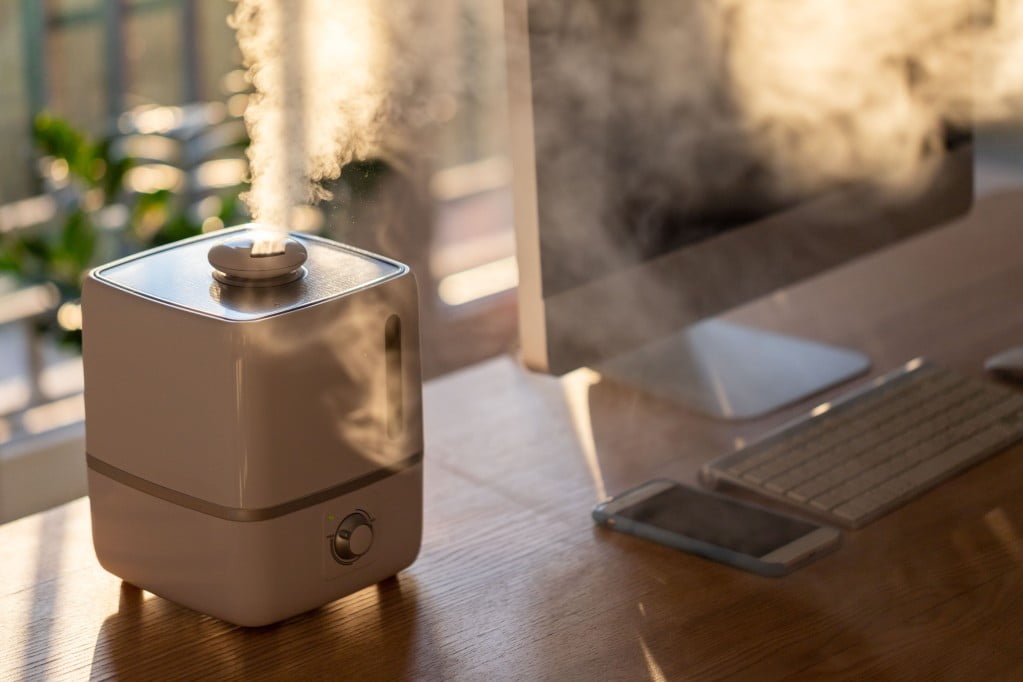













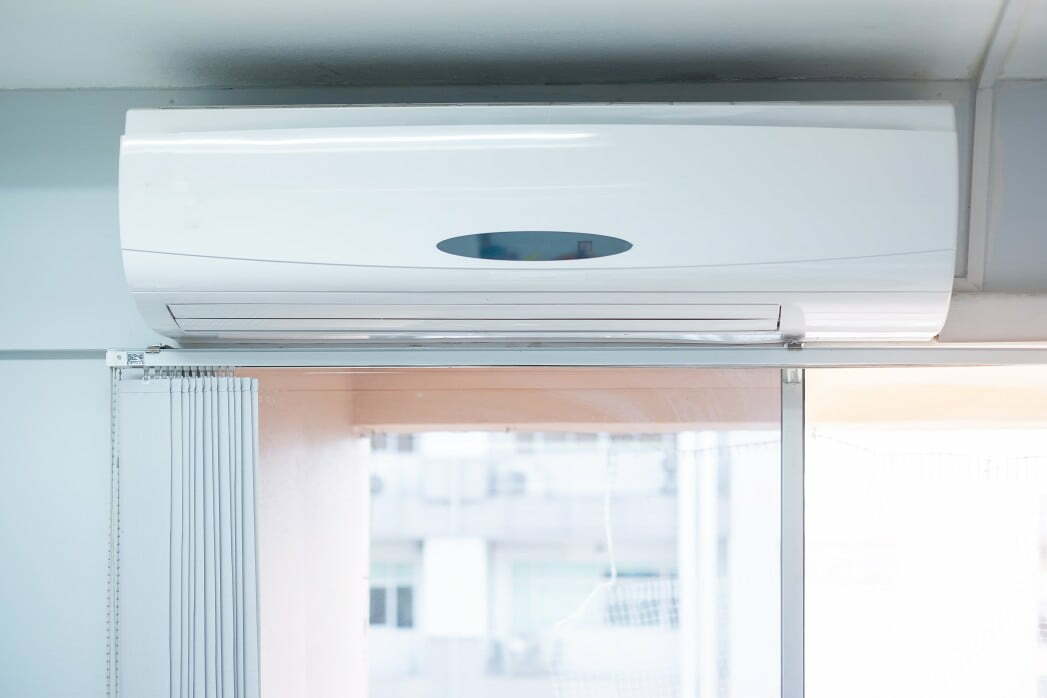
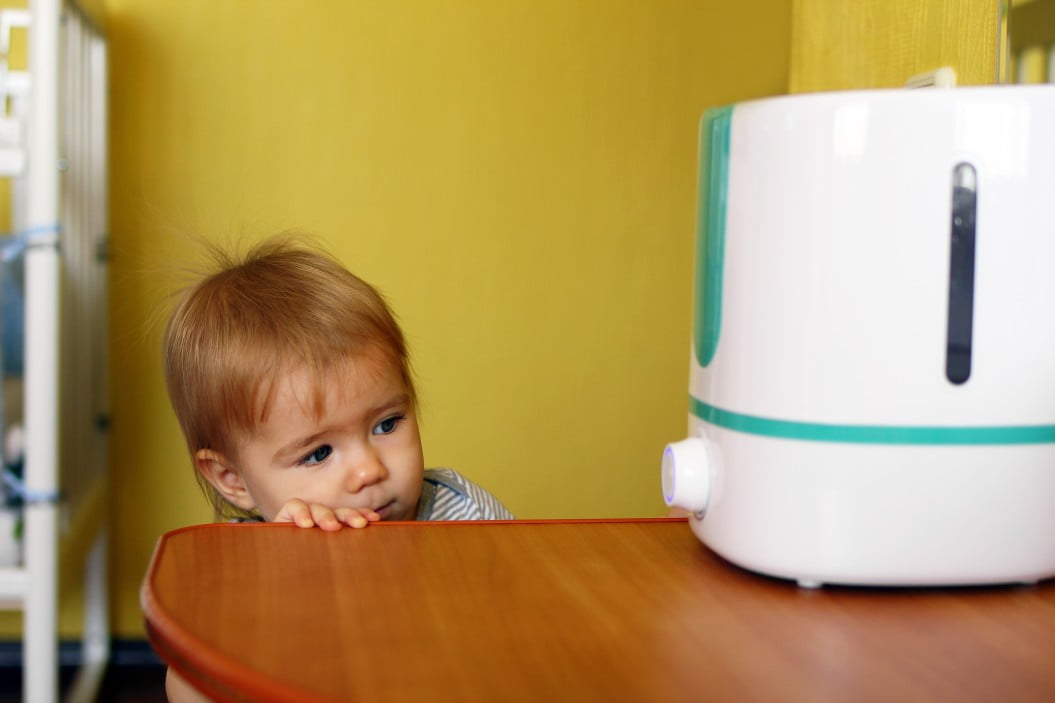
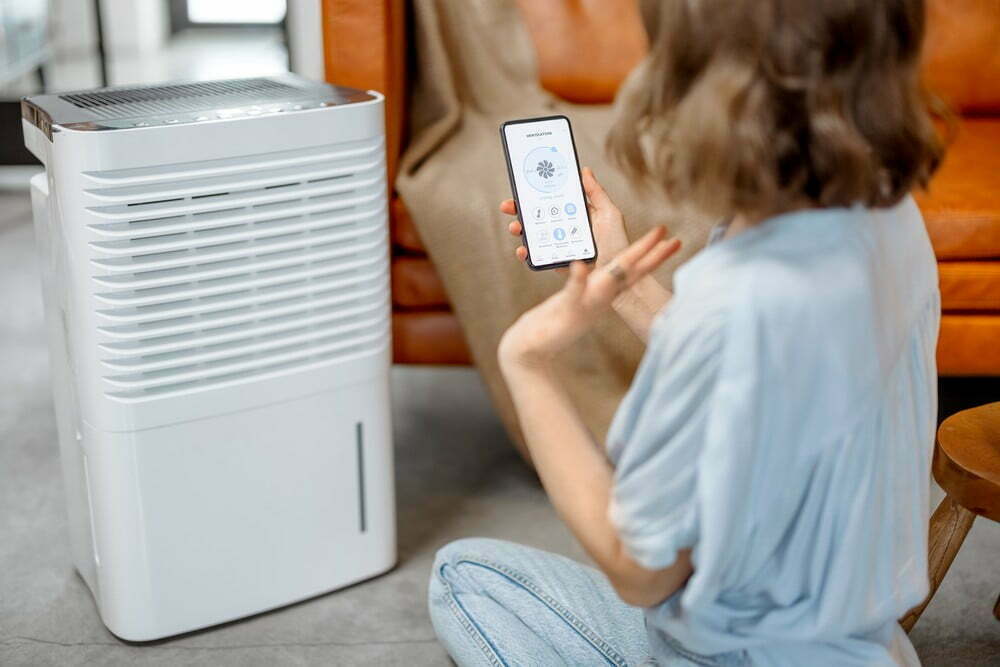
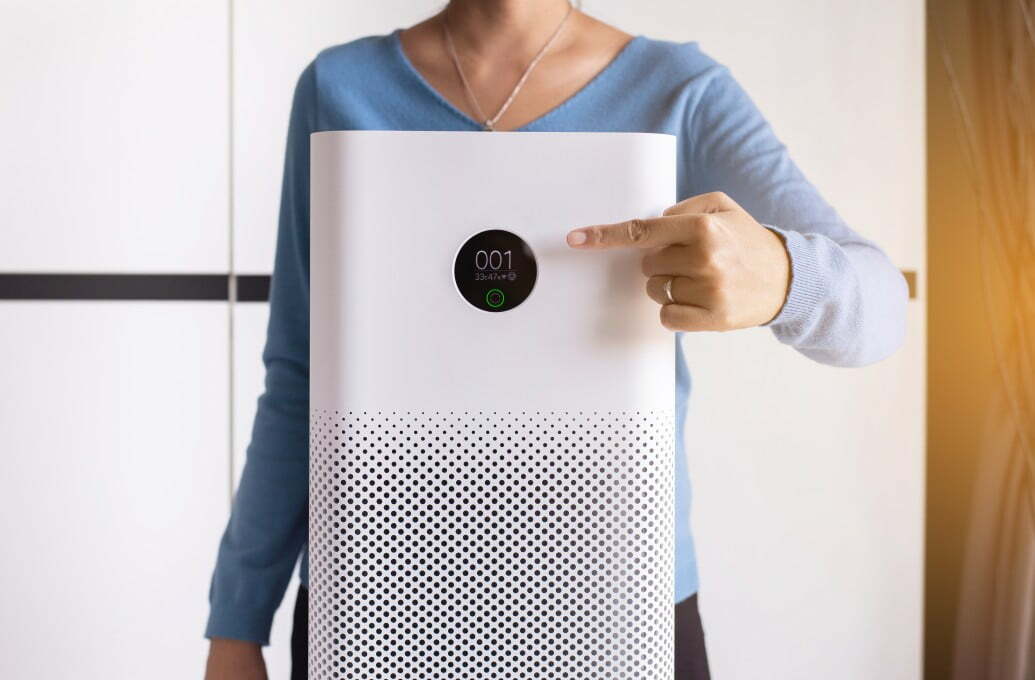
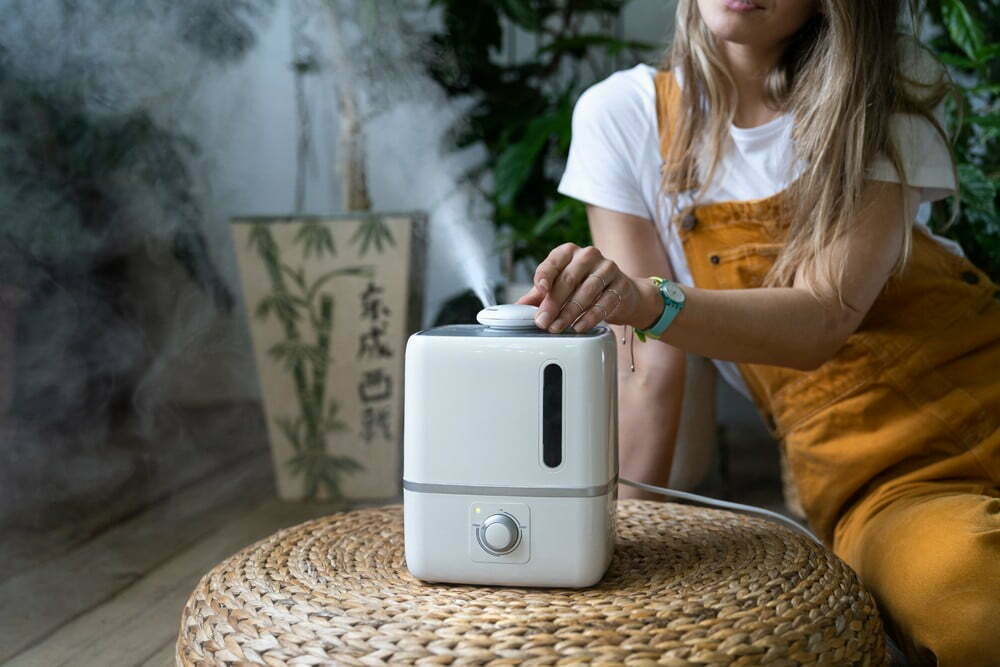
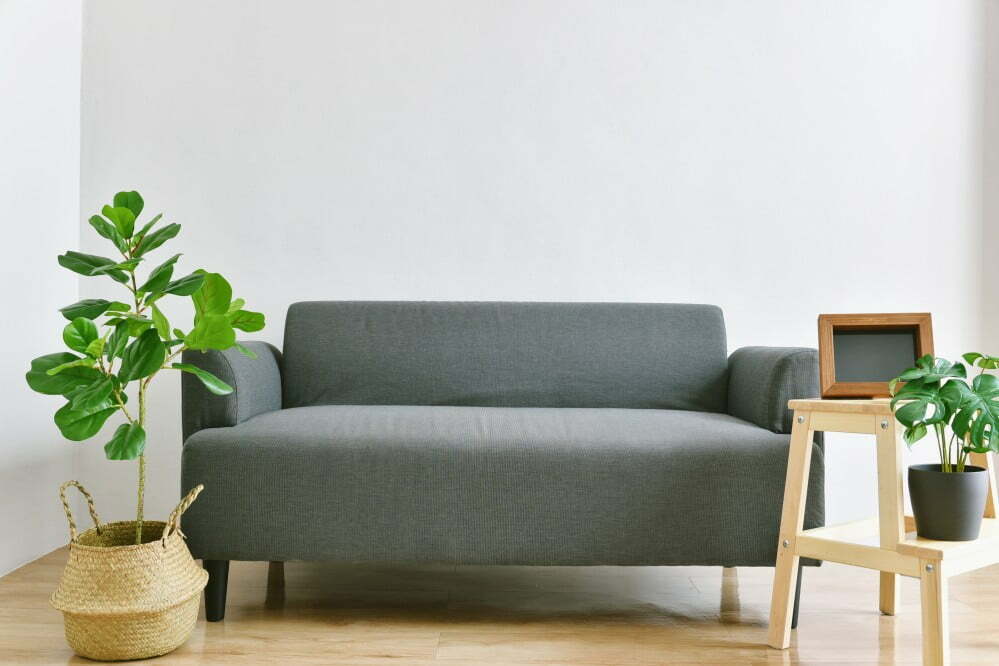

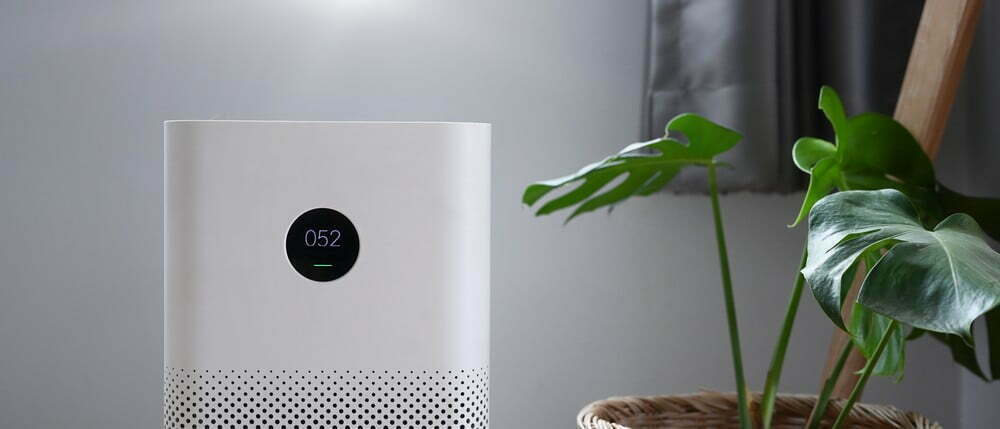
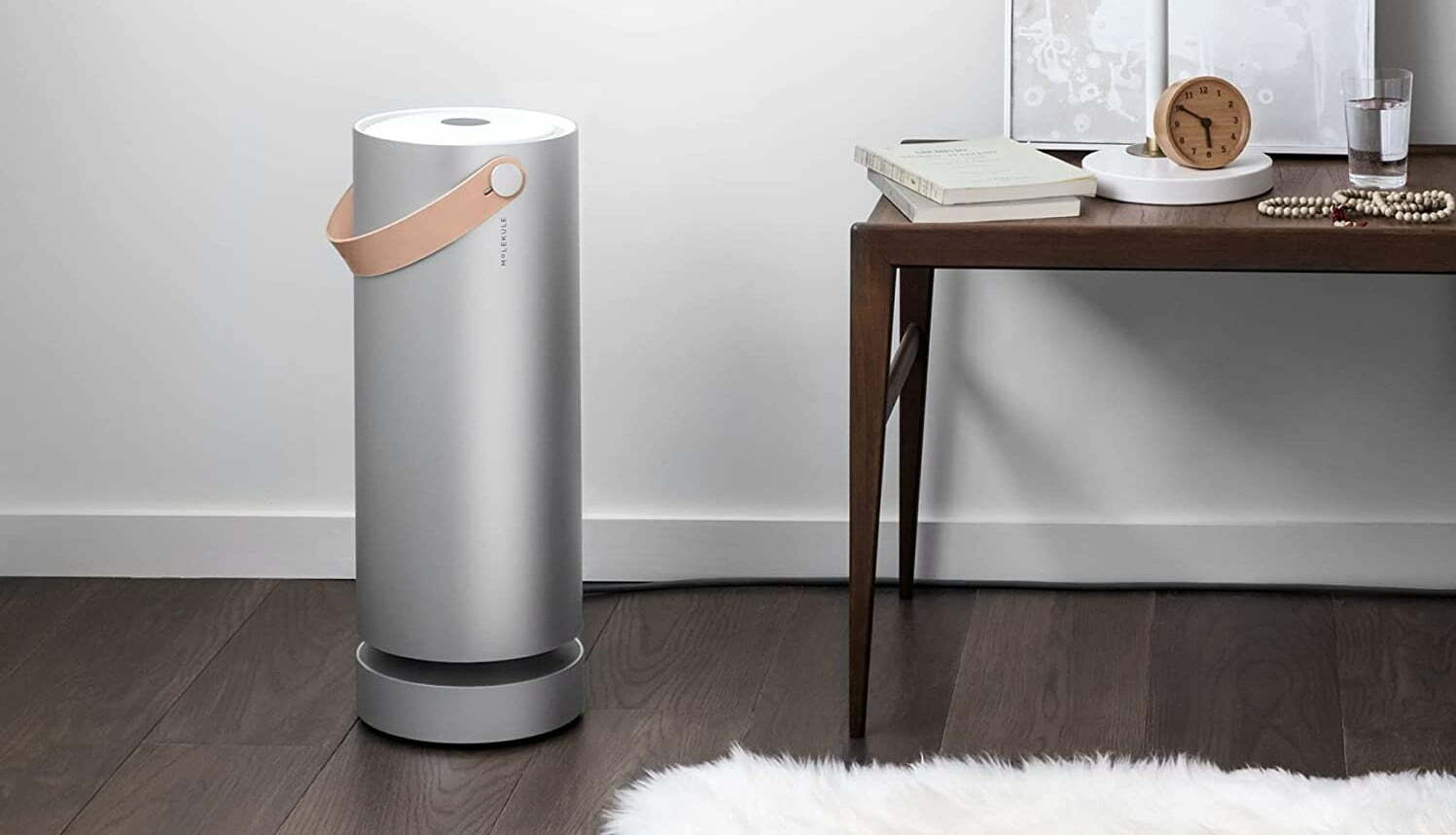
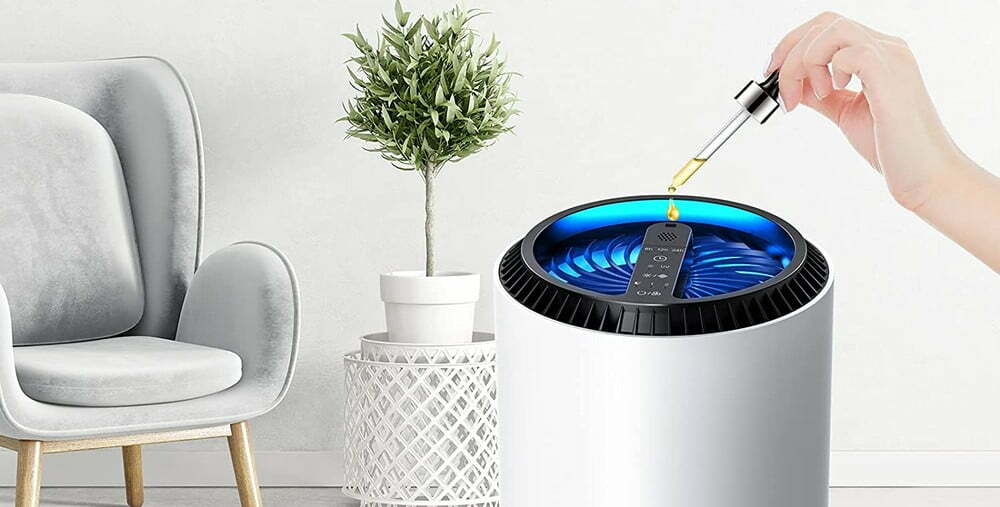
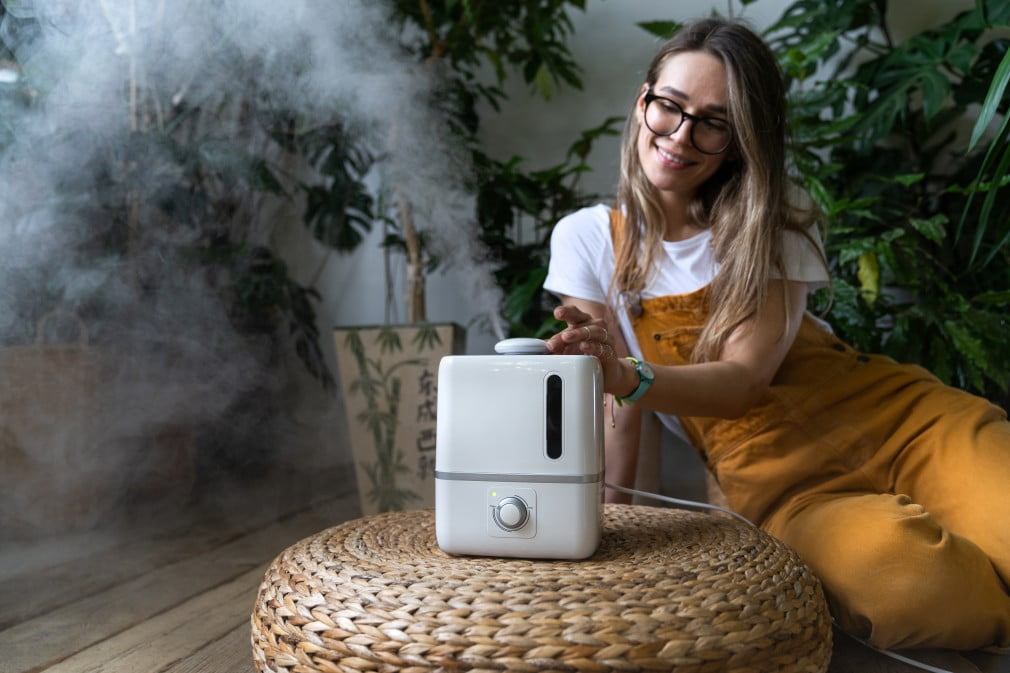
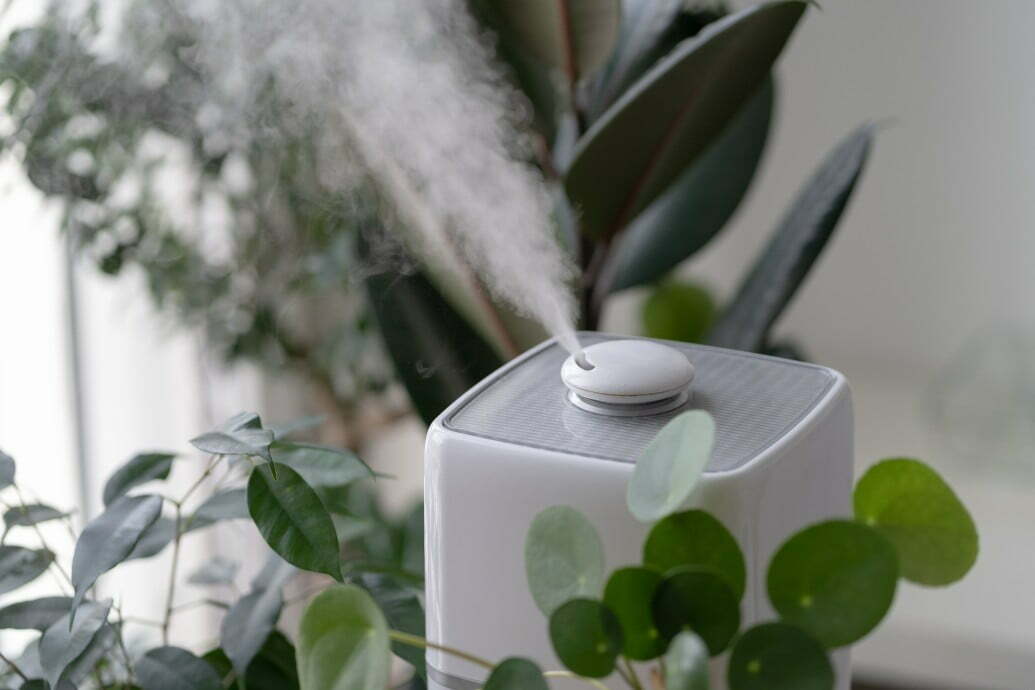
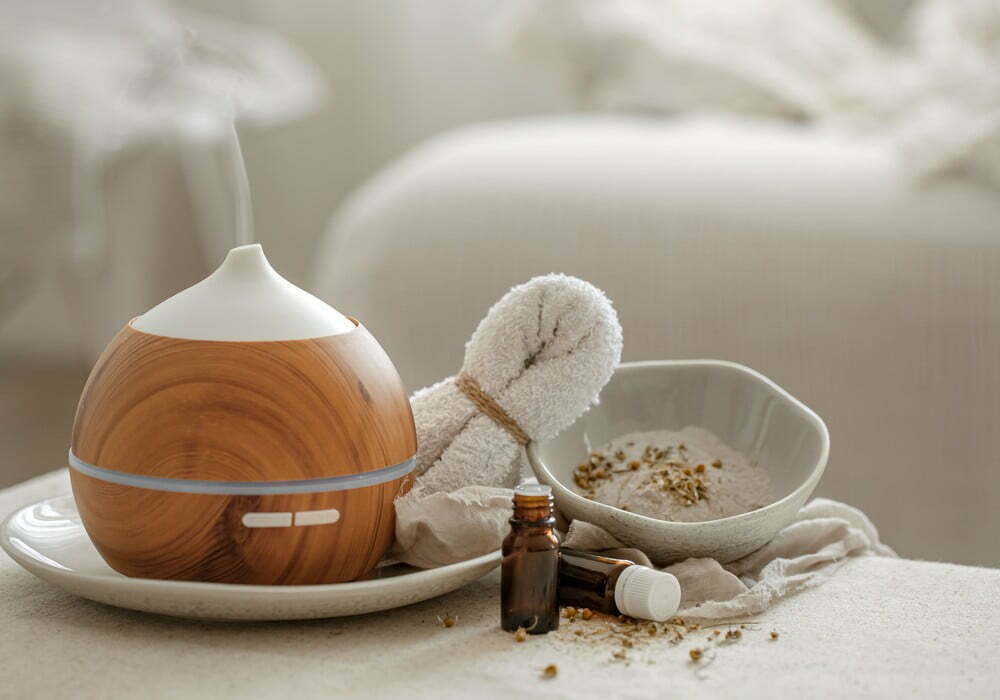
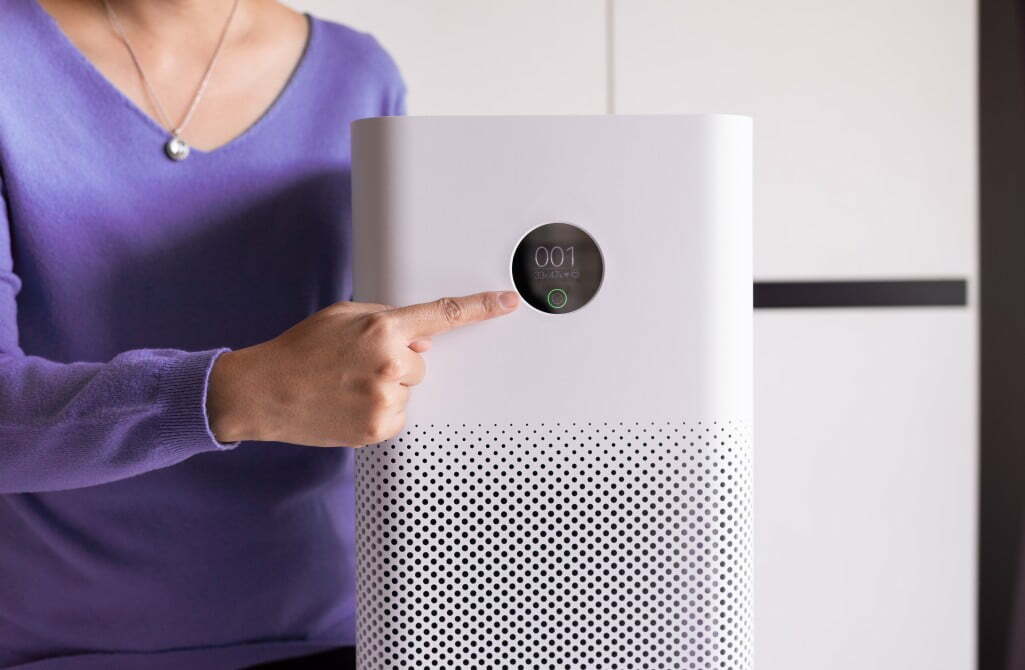
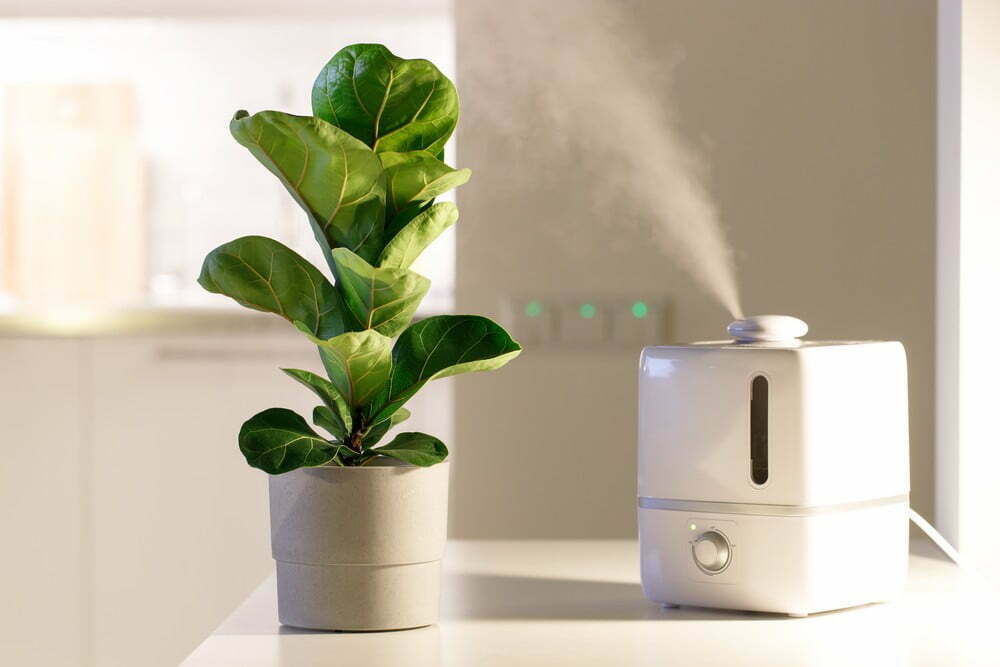
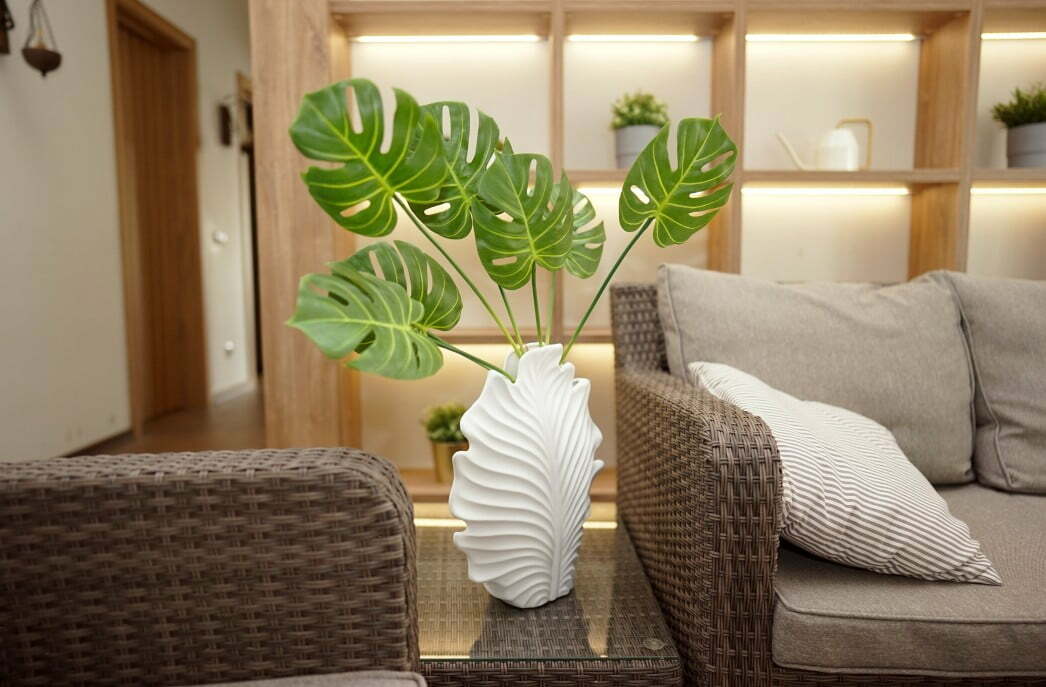
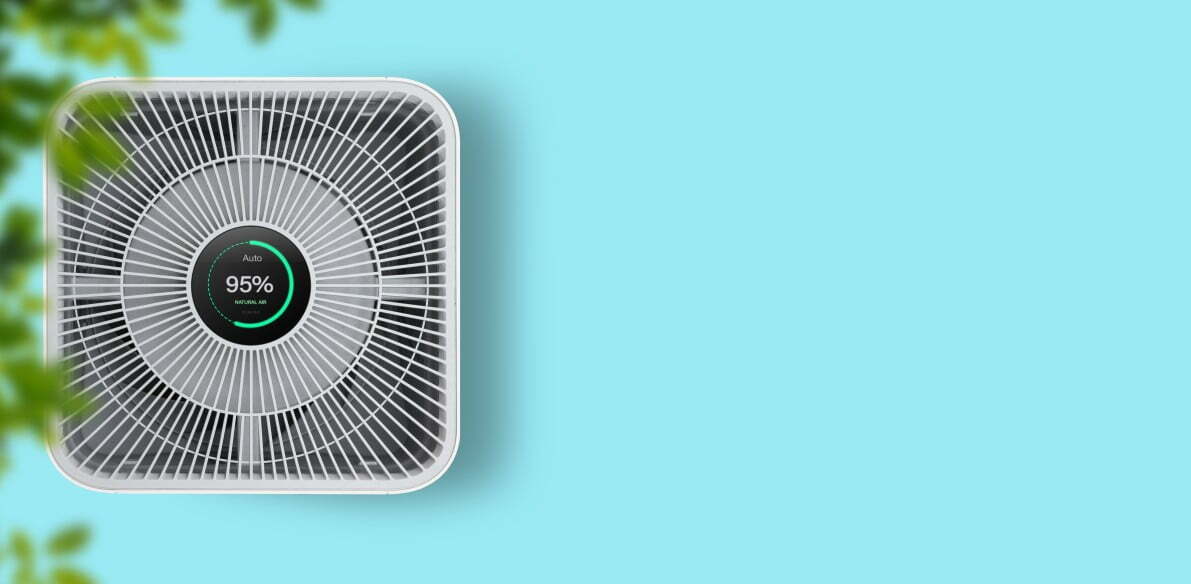
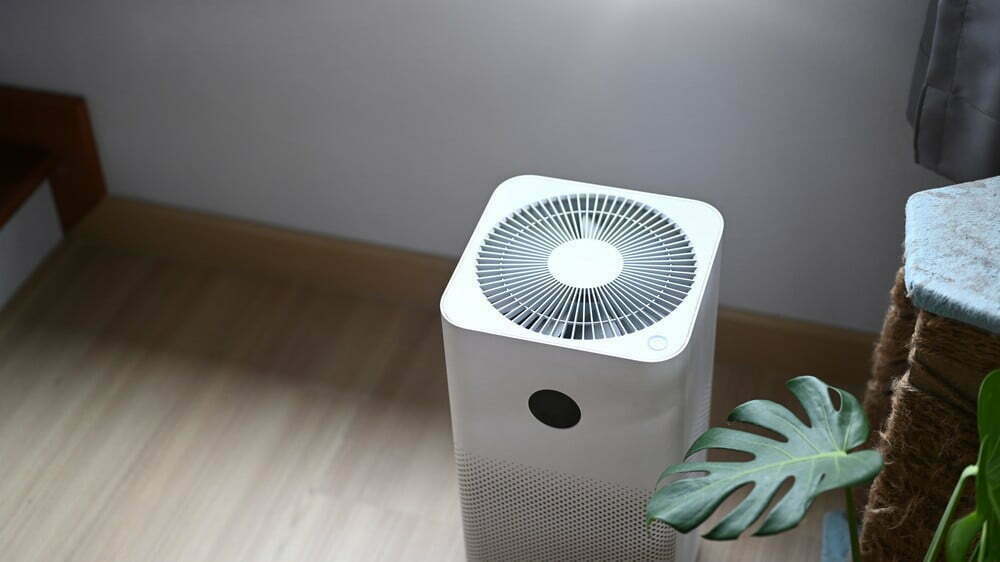
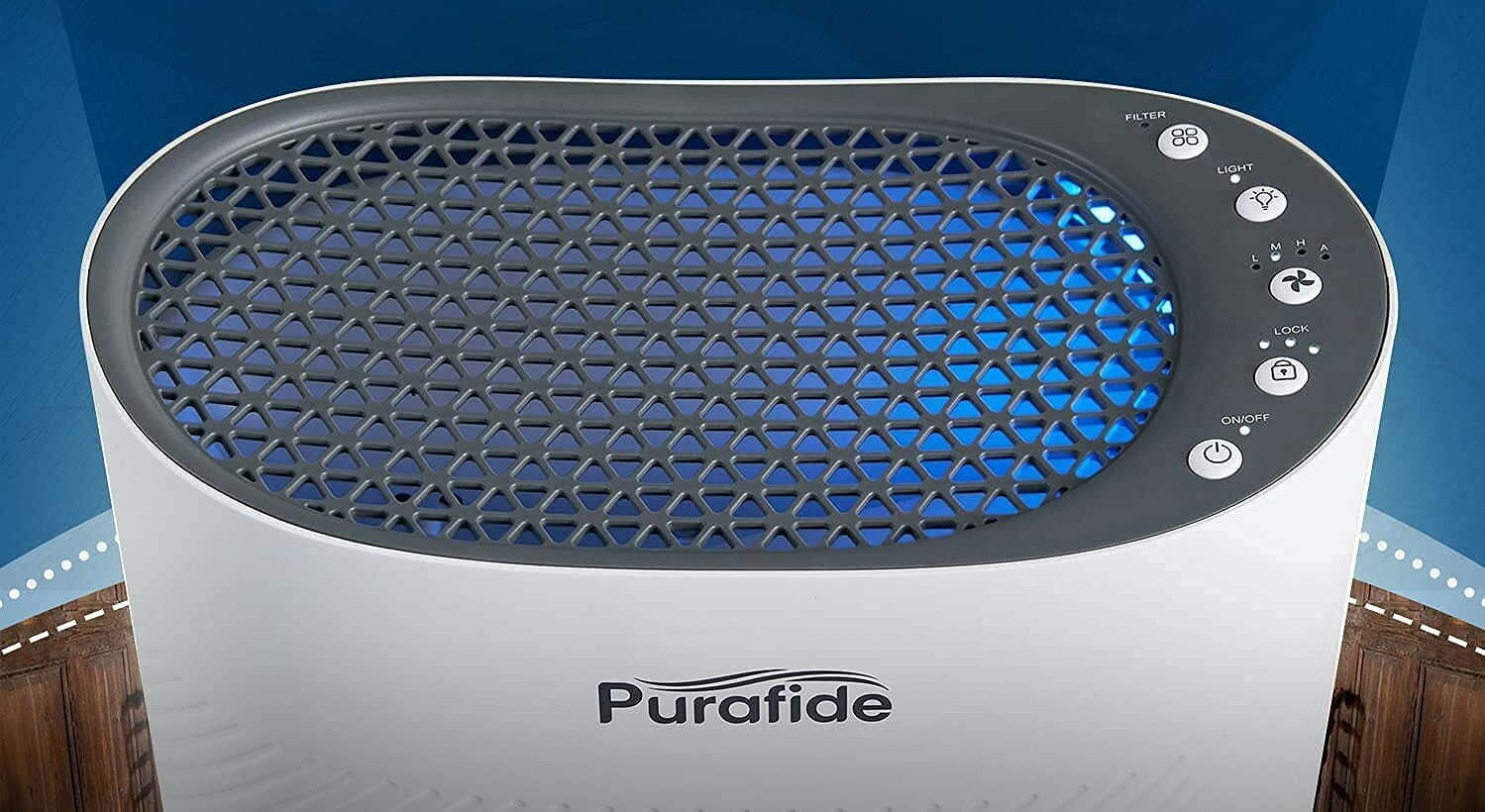
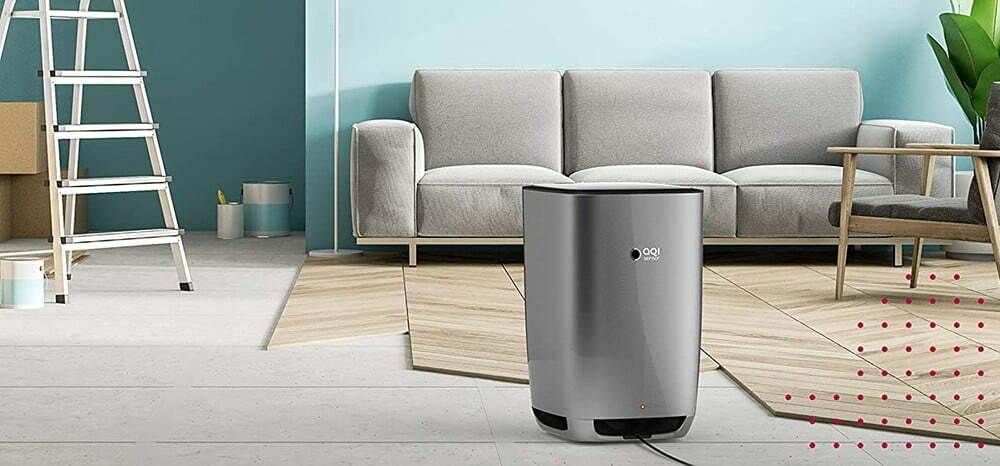
![Best Air Purifiers for VOCs and Formaldehyde in [year] 27 Best Air Purifiers for VOCs and Formaldehyde in 2026](https://www.gadgetreview.dev/wp-content/uploads/best-air-purifier-for-vocs-and-formaldehyde-image.jpg)
![Best Air Purifier in [year] ([month] Reviews) 28 Best Air Purifier in 2026 (January Reviews)](https://www.gadgetreview.dev/wp-content/uploads/Honeywell-True-HEPA-Allergen-Remover-HPA300-e1475603569442.jpg)
![Best Air Purifiers for Dust in [year] 29 Best Air Purifiers for Dust in 2026](https://www.gadgetreview.dev/wp-content/uploads/best-air-purifier-for-dust-image.jpg)
![Best Honeywell Air Purifiers in [year] 30 Best Honeywell Air Purifiers in 2026](https://www.gadgetreview.dev/wp-content/uploads/best-honeywell-air-purifier-image.jpg)
![Best Germicidal Air Purifiers in [year] 31 Best Germicidal Air Purifiers in 2026](https://www.gadgetreview.dev/wp-content/uploads/best-germicidal-air-purifier-image.jpg)
![Best Filterless Air Purifiers in [year] 32 Best Filterless Air Purifiers in 2026](https://www.gadgetreview.dev/wp-content/uploads/best-filterless-air-purifier-image.jpg)
![Best Levoit Air Purifiers in [year] 33 Best Levoit Air Purifiers in 2026](https://www.gadgetreview.dev/wp-content/uploads/best-levoit-air-purifier-image.jpg)
![Best Air Purifiers for Smoking Weed in [year] 34 Best Air Purifiers for Smoking Weed in 2026](https://www.gadgetreview.dev/wp-content/uploads/best-air-purifier-for-smoking-weed-image.jpg)
![Best Quiet Air Purifiers in [year] 35 Best Quiet Air Purifiers in 2026](https://www.gadgetreview.dev/wp-content/uploads/best-quiet-air-purifier-image.jpg)
![Best Desktop Air Purifiers in [year] 36 Best Desktop Air Purifiers in 2026](https://www.gadgetreview.dev/wp-content/uploads/best-desktop-air-purifier.jpg)
![Best Dyson Air Purifiers in [year] 37 Best Dyson Air Purifiers in 2026](https://www.gadgetreview.dev/wp-content/uploads/best-dyson-air-purifier.jpg)
![Best Air Purifiers for Dorm Room in [year] 38 Best Air Purifiers for Dorm Room in 2026](https://www.gadgetreview.dev/wp-content/uploads/air-purifier-for-dorm-room-1.jpg)
![Best Air Purifiers for Office in [year] 39 Best Air Purifiers for Office in 2026](https://www.gadgetreview.dev/wp-content/uploads/best-air-purifier-for-office.jpg)
![Best Air Purifiers for Basement in [year] 40 Best Air Purifiers for Basement in 2026](https://www.gadgetreview.dev/wp-content/uploads/best-air-purifier-for-basement.jpg)
![Best Air Purifiers For Odor in [year] 41 Best Air Purifiers For Odor in 2026](https://www.gadgetreview.dev/wp-content/uploads/best-air-purifier-odor.jpg)
![10 Best Personal Air Purifiers in [year] 42 10 Best Personal Air Purifiers in 2026](https://www.gadgetreview.dev/wp-content/uploads/best-personal-air-purifiers.jpg)
![10 Best Plug In Air Purifiers in [year] 43 10 Best Plug In Air Purifiers in 2026](https://www.gadgetreview.dev/wp-content/uploads/best-plug-in-air-purifier-image.jpg)
![10 Best Whole House Air Purifiers in [year] 44 10 Best Whole House Air Purifiers in 2026](https://www.gadgetreview.dev/wp-content/uploads/best-whole-house-air-purifier-image.jpg)
![10 Best Large Room Air Purifiers in [year] 45 10 Best Large Room Air Purifiers in 2026](https://www.gadgetreview.dev/wp-content/uploads/Coway-Airmega-200M-Large-Room-Air-Purifier-900x900-1.png)
![10 Best UV Air Purifiers in [year] 46 10 Best UV Air Purifiers in 2026](https://www.gadgetreview.dev/wp-content/uploads/best-uv-air-purifier.jpg)
